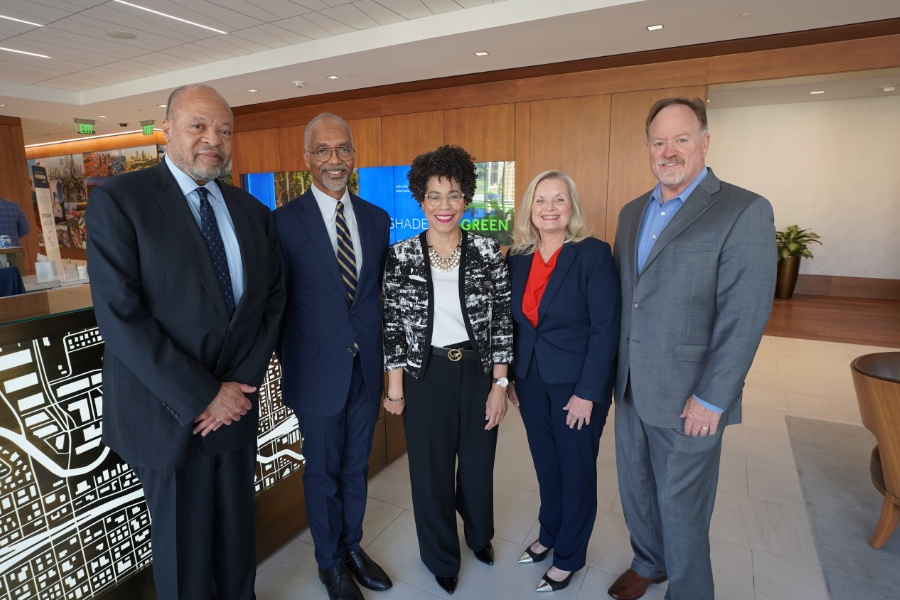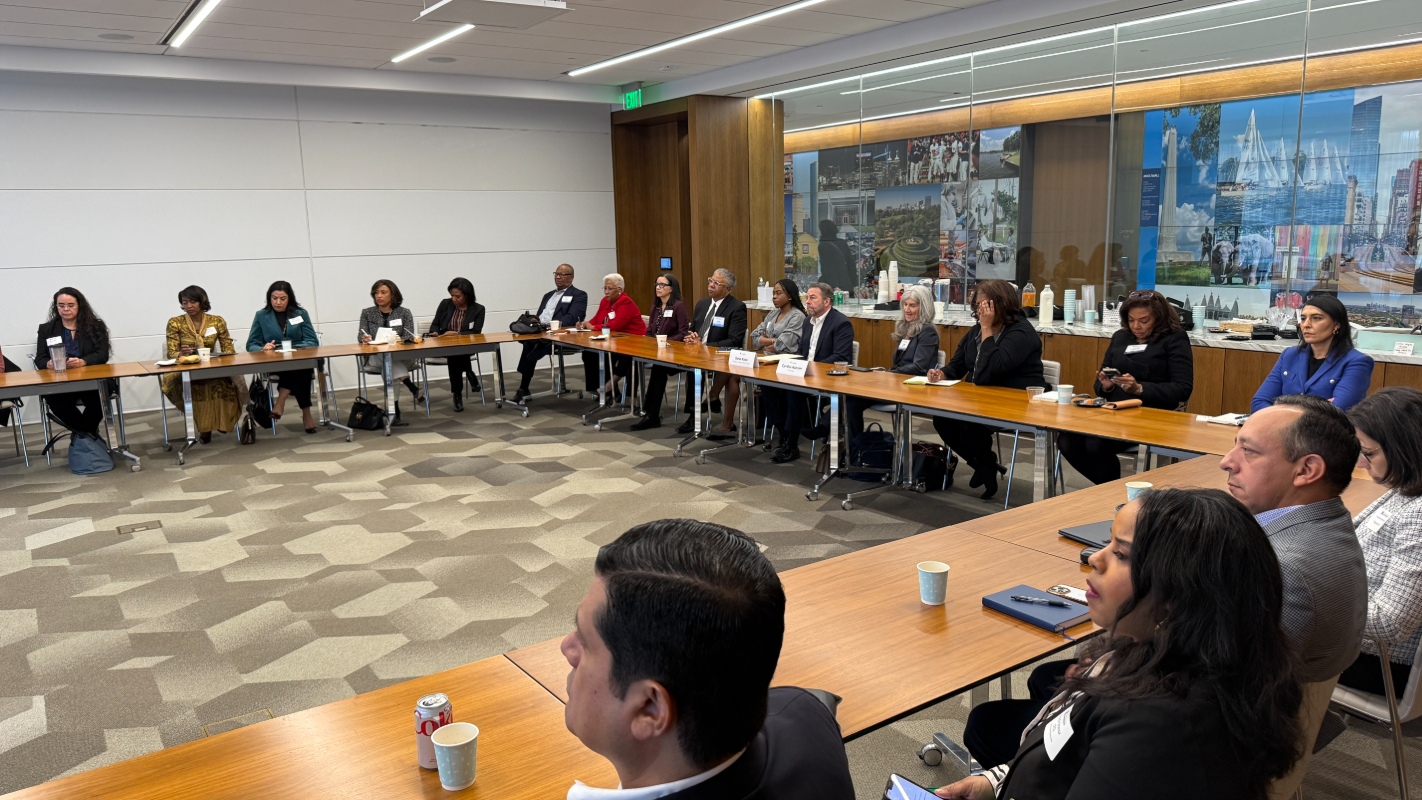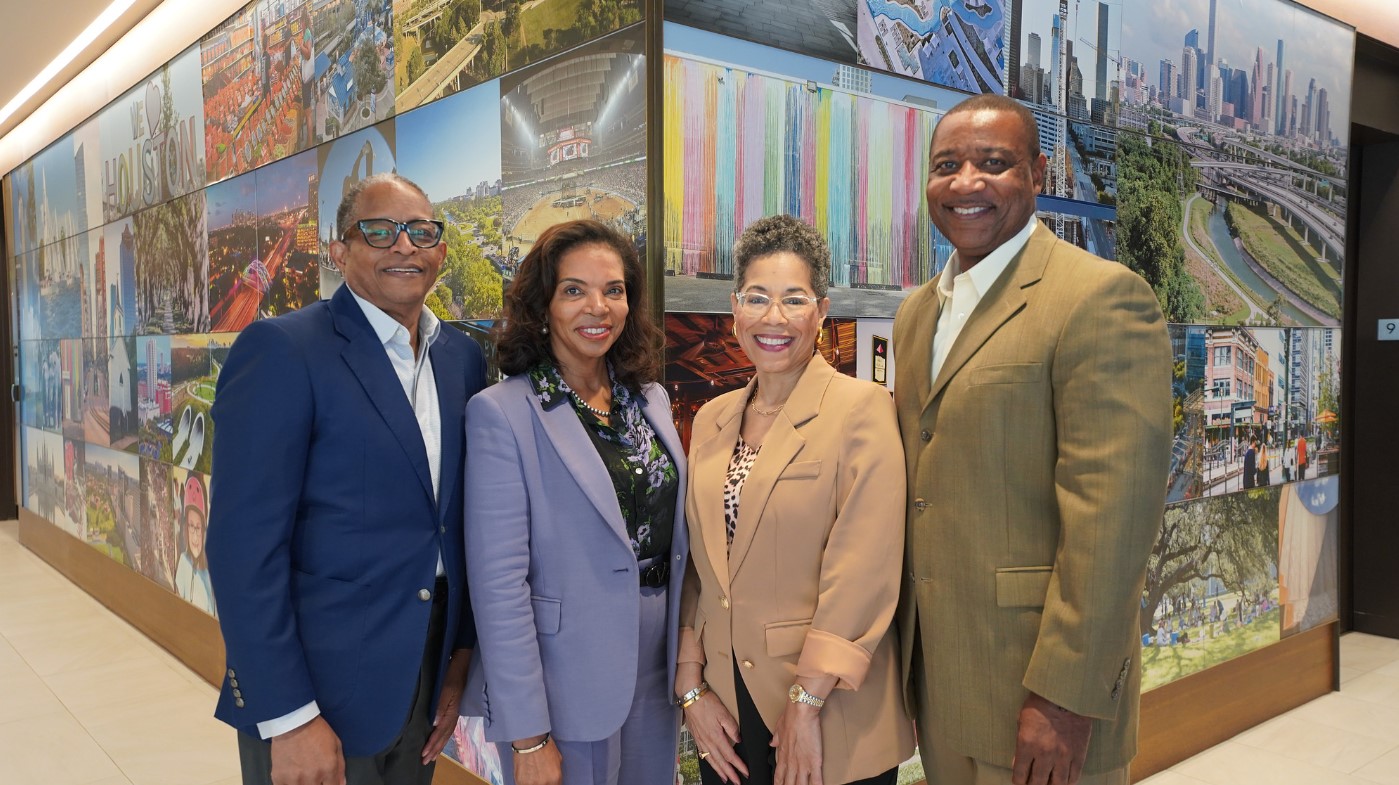Transforming Supplier Diversity Programs into Core Business Strategy
Published Apr 08, 2024 by Brina Morales
A leading supplier diversity assessment consulting firm, RGMA, shared its vision for transforming supplier diversity into a core business strategy during the Greater Houston Partnership's One Houston Together Chief Purchasing Officers (CPO) Summit on April 4.
Ralph G. Moore, President and Founder of RGMA, and Reginald Layton, Chief Technology Officer of RGMA, presented during the event.
RGMA strives to redefine supplier diversity by working with companies to improve programs that lead to not only growth and operational excellence but also healthy, stable and inclusive communities.
“If there’s any city in the world that can do this and illustrate this is Houston,” Moore said.
One of their strategic tools is a digital suite. It provides clients a digital roadmap for improving supplier diversity programs by creating process-based goals. Not only does it provide a baseline assessment, but as the company improves, many use the roadmap to identify “pockets of opportunities.”
Key Takeaways
- Supplier diversity is a business strategy, not a social strategy.
- RGMA believes supplier diversity should be linked to the company’s strategy and should be complimentary to DEI.
- Asking “How to spend more money?” is the wrong question
- Cost, quality and delivery equals operational excellence
- Complete an opportunity assessment for your company
- Understand and communicate the value proposition.
- The why or the value proposition of supplier diversity should be communicated to all stakeholders.
- RGMA helps companies communicate and educate the importance of supplier diversity programs to employees with live and recorded sessions, in addition to e-learning modules.
- When the value proposition is communicated it leads to:
- Operational excellence
- Corporate brand strengthening
- Strategic responses to customer requirements
- Support of ESG strategy with a focus on racial equity
- RGMA Five Levels of Supplier Diversity Maturity Model
- The maturity model is considered the gold standard for benchmarking supplier diversity initiatives.
- “It’s about implementing best practices, not increasing your spend,” Layton said. The goal is for clients to improve their RGMA scores as they implement best practices.
- Reviewing lagging and leading indicators will help you identify areas to improve; leading indicators are best practice.
Partnership Member Examples
Tom Sims, VP of Global Supply Chain and CPO of Hess Corp., and Tammy Martin, Director of Business Diversity Program at Burns & McDonnell, joined a panel discussion to share insights on how RGMA has helped their company’s supplier diversity programs.
Hess and Burns & McDonnell are at different stages of their supplier diversity programs. For Hess, collecting the data to determine a strategy was a challenge. Without that data, Hess could not determine the best roadmap for their program, according to Sims.
When Burns & McDonnell took RGMA’s initial assessment, it determined the company had a traditional, compliant-driven program. RGMA helped Burns & McDonnell set up a strategic and educational program that launched in June 2022. In addition to that, Burns & McDonnell rolled out a communications plan across the organization, communicating the value proposition. In 2023, the company retook the assessment and found it had moved to a level four from a level three in the Five Levels of Supplier Diversity Maturity Model. Martin said creating visibility and giving their diverse partners “a seat at the table” has made their program successful.
 The Houston Report
The Houston Report




















